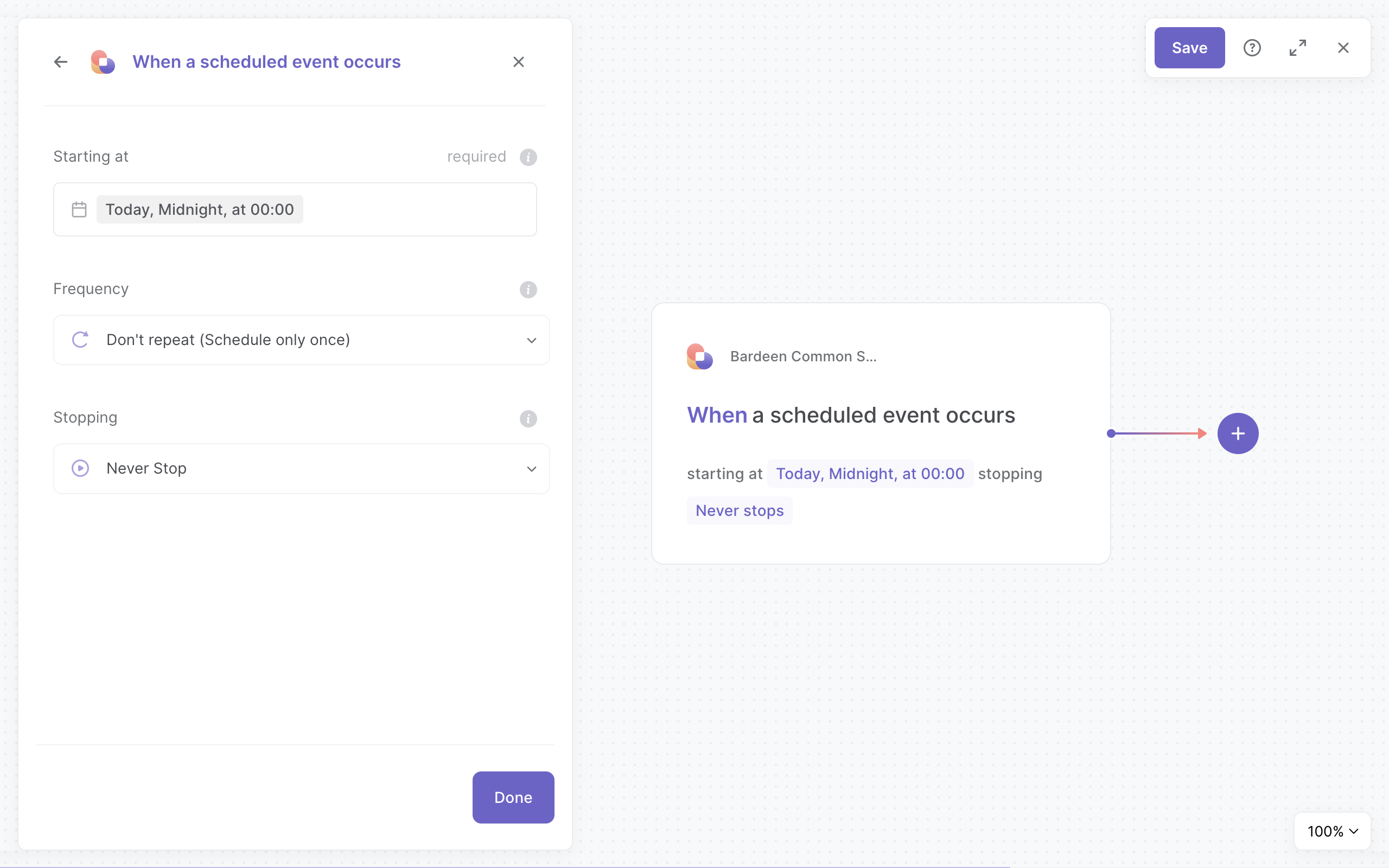The advantages of software that automates everyday workflows don’t have to be spelled out. In theory, it’s a major labor saver — not to mention wallet-friendly. But perhaps because automating back-office tasks is low-hanging fruit, the market for workflow automation software has become overcrowded in recent years. UiPath, one of the largest automation vendors, saw its market cap drop from $35 billion to $15 million within the span of a year. And a number of smaller players, including Signavio, Intellibot MyInvenio, Clear Software, and Servicetrace, were snatched up by larger tech firms.
Pascal Weinberger, the CEO of Bardeen, believes the software automation industry has two main challenges to overcome: ease of use and discovery of automation. Currently, to implement automation, companies buy tools and then typically hire large consulting firms to actually implement automation with the tools, Weinberger asserts. Post-implementation, companies find that these tools are tough to use, particularly when it comes to discovering which processes to automate — a step known as process mining.
“This leads to a lot of friction and makes it hard for the end-users to actually automate their work,” Weinberger told TechCrunch via email. “Existing tools are too hard to use for the end-users who actually do the processes which need to be automated.”
Weinberger has a dog in this fight; Bardeen is an automation vendor. But while he acknowledges that the market is nearing the saturation point, he argues that Bardeen is positioned for success because it solves many of the problems with process automation platforms today.
“Bardeen is working to bring … automation to the masses. We do so by making it very easy for our users to build and customize their unique workflow automations across their software-as-a-service tools,” Weinberger said. “Bardeen [can] enable … IT departments to focus on what matters, while end users are enabled to identify, automate, and maintain their own automation for their unique workflows.”
Image Credits: Bardeen.ai
Weinberger co-founded Bardeen in 2020 alongside Artem Harutyunyan, with whom he shares a curious work history. Weinberger previously studied neural anatomy as an intern at the Max Planck Institute for Brain Research before co-launching Gaia Solutions, a startup monitoring crop conditions through satellite imagery and soil sensors. Harutyunyan was a senior fellow at CERN, focusing on software, and later a senior director of product and engineering at Mesosphere.
The inspiration for Bardeen came from Weinberger’s and Harutyunyan’s personal experiences running engineering organizations, according to Weinberger, where they had to complete many “mundane” development tasks every day. With Bardeen, users download a browser extension and select from a range of automations the tasks they want to automate, like scraping data from the web and copying it to a spreadsheet or reminding participants about an upcoming meeting. They can also create custom automation workflows or modify prebuilt ones to fit their needs.
“Bardeen has a huge advantage … here because the system operates inside the user’s browser. All the data processing and storage is done on the edge — i.e., inside the user’s browser,” Weinberger explained. “We don’t actually see, store, or access any user’s data directly. This approach is quite unique and none of the competitors do that — they all use traditional cloud-first model. We essentially built a platform for automating workloads in a privacy-preserving way.”
Weinberger sees AI modules for things like text-to-speech and optical character recognition and Smart Suggestions, which recommends automations to users based on the current context, as another key differentiator. He says that the goal is to evolve Smart Suggestions over time so that it learns and suggests “any automation that can help save time.”
Ease of use is certainly important when it comes to automation. According to a recent survey from Creatio, despite the fact that automation is becoming more common within companies, more than one-third of business technology workers say that slow or no adoption of automation from their coworkers is a top challenge in their line of work.

Image Credits: Bardeen.ai
“We make it really easy not only to create an automation, but also to share it and make it accessible to the team members and people you work with every day. We built more integrations with the most commonly used software-as-a-service platforms on the market, for example Slack, Zoom, Google Sheets, Airtable, Notion, and ClickUp,” Weinberger added. “We’re working towards making it feel like magic … [the goal is] automating the automations such that non-technical users can, without any effort or prior knowledge, identify, build and share their workflow automations.”
Since the public launch of Bardeen in February, Weinberger says that the platform has grown to more than 25,000 users. He declined to share revenue, emphasizing that Bardeen is focused on expansion.
While Bardeen might face a challenge from Magical, which takes a similar edge, browser-based approach to automation, Weinberger didn’t express concerns. No doubt boosting his confidence is the $15.3 million Series A that Bardeen closed today, which was led by Insight Partners with participation from existing investors 468 Capital and FirstMark Capital. It brings the company’s total raised to $18.8 million.
Weinberger expects Bardeen will hire on the engineering, AI, and growth side of its 11-person team in the next year.
“Our main competitors are software-as-a-service automation tools like Zapier, as well as incumbent … tools like UiPath, Automation Anywhere, etc.,” he said. “Bardeen is well-positioned to help its users to increase their efficiency at work and can therefore benefit from the increasing need for more automation and digitalization due to the pandemic and other pressure factors at this current time,” he said.

